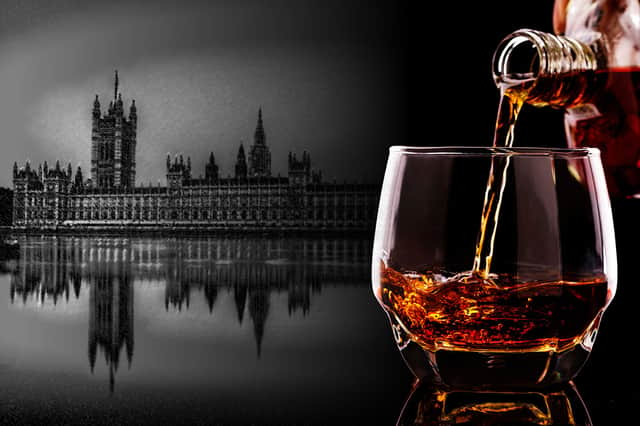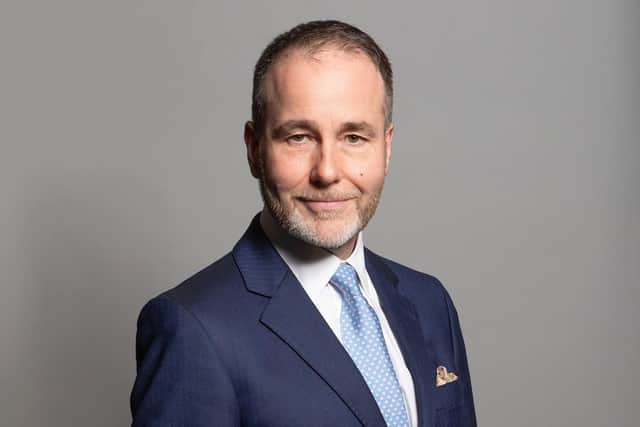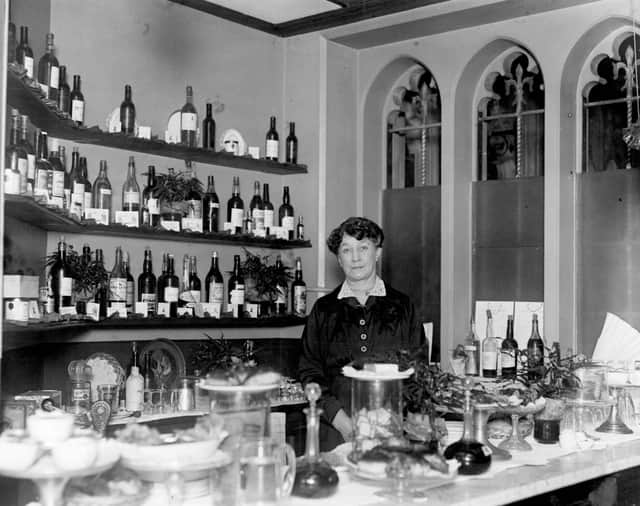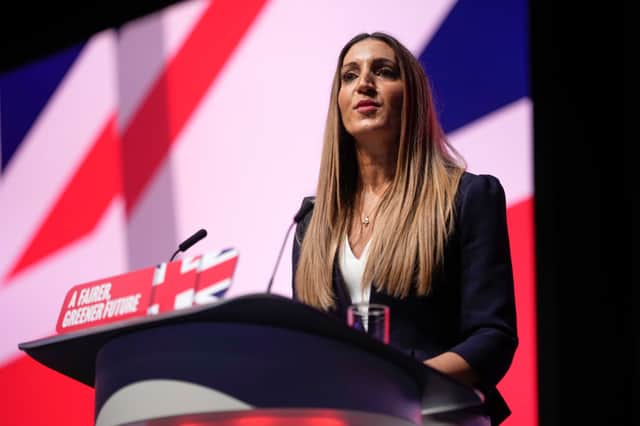Watchdog says Parliament alcohol issues mean witnesses are too drunk to give evidence in misconduct cases


Drinking in Parliament is sometimes so excessive that potential witnesses to bullying or sexual misconduct are unable to give evidence as they can't remember, a watchdog has said.
The Independent Complaints and Grievance Scheme (ICGS) was set up in 2018 after the Me Too movement to investigate complaints of inappropriate behaviour in Parliament. This includes bullying, harassment and sexual misconduct. It recently investigated Tory MP Peter Bone, who has been recommended for a six-week suspension.
Advertisement
Hide AdAdvertisement
Hide AdThe ICGS made the claims in its annual report for 2022 to 2023. In a section entitled the presence and impact of alcohol, it said: "A number of the cases included the presence of alcohol and the culture of drinking in Westminster. Alcohol was a frequent factor in incidents in bars on the parliamentary estate (leading to intimidating behaviour likeshouting and swearing), external functions connected to parliamentary activities, or where colleagues socialised at bars/pubs after such events."
It added: "Alcohol affects investigations in other ways such as impacting the ability of witnesses to recall events when gathering evidence in an investigation." This was part of a section on "sharing learnings" when the ICGS team reviewed 30 investigations that closed in 2021 and 2022.
There are seven licenced premises on the Parliamentary estate, where 650 MPs, 781 peers and around 15,000 other people work. Strangers' Bar is where passholders can bring guests, while the Smoking Room is only for MPs.


There have been a number of high-profile incidents involving drunk MPs in recent years. Chris Pincher resigned as Deputy Chief Whip after drunkenly groping two men at the Carlton Club last year. In a scandal which brought down Boris Johnson's government, he said: "As I told the prime minister, I drank far too much on Wednesday night, embarrassing myself and others and I am truly sorry for the upset I caused.” There is a by-election in Tamworth tomorrow (19 October) to replace Pincher as an MP.
Advertisement
Hide AdAdvertisement
Hide AdNeil Coyle lost the Labour whip after he was found to have launched a “foul-mouthed and drunken” tirade at another MP's assistant, and on a second occasion racially abused political journalist Henry Dyer. Coyle accepted he was drunk on both occasions, which occurred in the House of Commons' Strangers' Bar, and said he has now given up alcohol.


Former Labour MP Eric Joyce was involved in a drunken melee in the Strangers' Bar in 2012. He was charged with common assault after headbutting a Tory MP and Tory Councillor, while punching a Labour whip, two more Conservative MPs and another councillor. In 2013, Joyce was found wrestling on the floor with two police officers outside the Sports and Social Bar (now known as the Wool Sack).
Speaking about the drinking culture on BBC Politics Live, Labour MP Dr Rosena Allin-Khan said she had once been called to give medical assistance at a bar brawl in Parliament, where someone had glass in their face. She said: "I'd say the majority of people who go and drink in the bars of the House of Commons are people who work incredibly hard throughout the day ... who just want to enjoy a beverage at the end of the day. I regularly get called to all sorts of medical things in the house, and once I got called to come to a situation where someone had a glass in their face."


While Tory MP Tim Loughton made the point that members of Parliament make up a very small proportion of the total people drinking in Westminster. "We are a tiny, tiny part of that, and yet we are blamed for all of the problems that go on," he said. "Some people have let everyone else down, but it is not the norm, it is a small number and gradually they are making it more difficult for people to do that."
Advertisement
Hide AdAdvertisement
Hide AdOther issues cited in the ICGS report were "power imbalances" and "blurred boundaries". Regarding the former issue, it said: "In most cases, there was a power imbalance between the complainant and the respondent. Most frequent were complaints from MPs’ staff about MPs or complaints about line managers from their direct reports. Differences in power can make it difficult for individuals to complain against the people responsible for their work and ultimately their employment status."
The report continued: "In a number of cases, the blurring of personal and professional boundaries led to complaints about inappropriate behaviour. This was most prominent in complaints against MPs by their staff.
"A lack of professional boundaries resulted in incorrect assumptions being formed about acceptable behaviours. Examples include invitations to events where the purpose or connection to parliamentary work may not be clear, overly frequent calls/messages and at unreasonable hours, and overly familiar behaviour."
